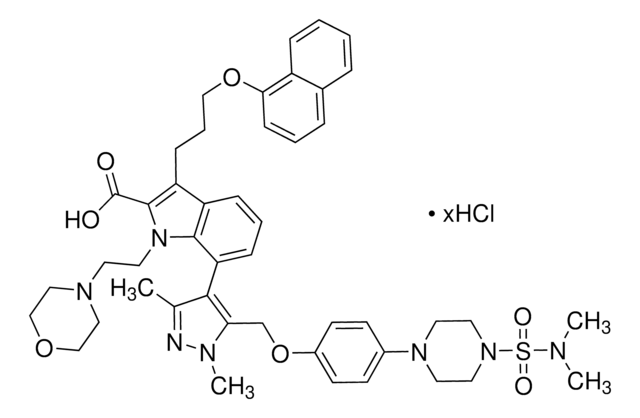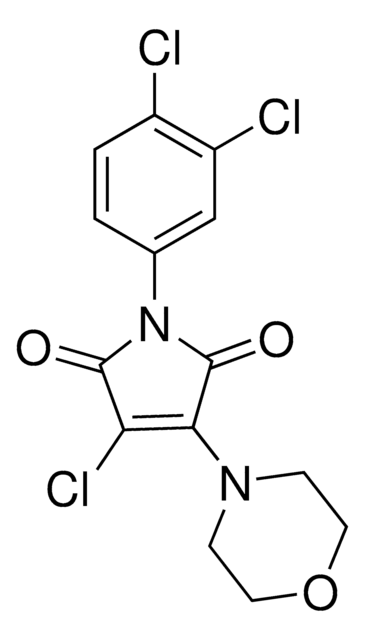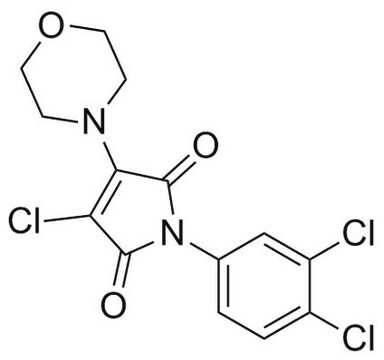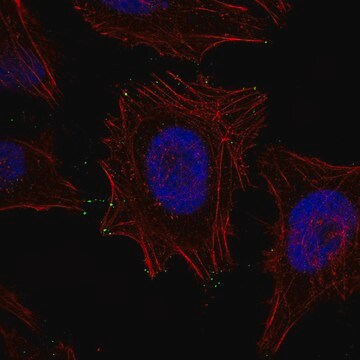553525
RAD51 Inhibitor, B02
The RAD51 Inhibitor, B02 controls the biological activity of RAD51. This small molecule/inhibitor is primarily used for Cell Structure applications.
Sinónimos:
RAD51 Inhibitor, B02, ( E)-3-Benzyl-2-(2-(pyridin-3-yl)vinyl)quinazolin-4(3H)-one
About This Item
Productos recomendados
Quality Level
assay
≥98% (HPLC)
form
powder
manufacturer/tradename
Calbiochem®
storage condition
OK to freeze
protect from light
color
light yellow
solubility
DMSO: 50 mg/mL
shipped in
ambient
storage temp.
2-8°C
InChI
1S/C22H17N3O/c26-22-19-10-4-5-11-20(19)24-21(13-12-17-9-6-14-23-15-17)25(22)16-18-7-2-1-3-8-18/h1-15H,16H2/b13-12+
InChI key
GEKDQXSPTHHANP-OUKQBFOZSA-N
General description
Packaging
Warning
Reconstitution
Other Notes
Huang, F., et al. 2011. ACS Chem. Biol.6, 628.
Legal Information
Storage Class
11 - Combustible Solids
wgk_germany
WGK 3
flash_point_f
Not applicable
flash_point_c
Not applicable
Certificados de análisis (COA)
Busque Certificados de análisis (COA) introduciendo el número de lote del producto. Los números de lote se encuentran en la etiqueta del producto después de las palabras «Lot» o «Batch»
¿Ya tiene este producto?
Encuentre la documentación para los productos que ha comprado recientemente en la Biblioteca de documentos.
Nuestro equipo de científicos tiene experiencia en todas las áreas de investigación: Ciencias de la vida, Ciencia de los materiales, Síntesis química, Cromatografía, Analítica y muchas otras.
Póngase en contacto con el Servicio técnico








